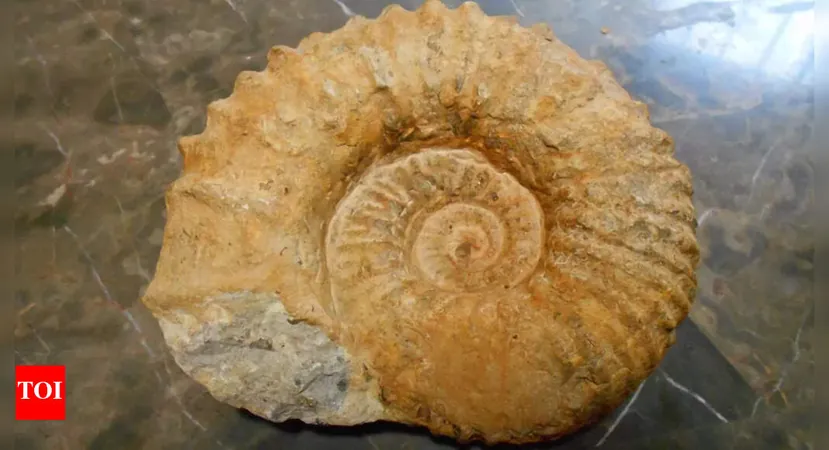
Ancient Fossils Uncover Secrets of Life's Resilience After the Dinosaur Apocalypse
2025-06-11
Author: Arjun
New Discoveries from the Depths of Time
A groundbreaking study of ancient ocean shells has unveiled how marine ecosystems managed to retain their balance even after the cataclysmic dinosaur extinction event 66 million years ago. Despite a staggering loss of species, essential ecological roles like burrowing and filtering survived intact, highlighting the need for modern conservation efforts to protect these vital functions.
Fossils That Tell a Story
Researchers have unearthed ancient shells interred within ocean stone layers, providing unprecedented insights into life after the extinction of dinosaurs. An international team of scientists has revealed that ecosystems can maintain stability even after such a colossal event. Their study, published in Science Advances, explores how marine life rebounded following the catastrophic asteroid impact that reshaped the Earth. The findings suggest that ecological roles were largely preserved despite significant species loss, challenging previous notions about post-extinction recovery. Professor David Jablonski from the University of Chicago, one of the lead authors, stated, 'This research offers a fresh perspective on life's remarkable resilience.'
Reshaping Our Understanding of Evolution
Historically, some experts believed that mass extinctions propelled rapid evolutionary change or allowed surviving species to adopt new ecological roles. However, fossil evidence paints a more complex picture. The study revealed that ecological roles remained largely unchanged, and surviving species did not consistently thrive. Oddly, while about 75% of species disappeared, nearly all ecological functions continued to exist, albeit with different species filling these roles. This scrutiny involved examining mollusc fossil records—including clams, mussels, and oysters—both before and after the mass extinction.
Lessons for Future Conservation Efforts
Intriguingly, the research team noticed that recovery patterns post-extinction diverged from expectations. Some diverse groups didn’t thrive, and a disparity arose between survival and long-term success. Dr. Jablonski emphasized that conservation strategies should prioritize the preservation of essential ecological roles rather than focusing solely on individual species. 'This approach is critical for maintaining ecosystem function and resilience, especially as we face modern extinction events,' he said. 'Billions rely on ocean resources for their livelihoods, and it’s imperative that our management policies consider the broader ecological structure rather than fixating on single species.'
Conclusion: A Call to Action
These findings beckon a renewed perspective on ecological conservation, urging us to safeguard the intricate balances that uphold our oceans. As challenges mount in the face of climate change and habitat loss, understanding the past can provide crucial insights for securing a sustainable future for marine ecosystems.




 Brasil (PT)
Brasil (PT)
 Canada (EN)
Canada (EN)
 Chile (ES)
Chile (ES)
 Česko (CS)
Česko (CS)
 대한민국 (KO)
대한민국 (KO)
 España (ES)
España (ES)
 France (FR)
France (FR)
 Hong Kong (EN)
Hong Kong (EN)
 Italia (IT)
Italia (IT)
 日本 (JA)
日本 (JA)
 Magyarország (HU)
Magyarország (HU)
 Norge (NO)
Norge (NO)
 Polska (PL)
Polska (PL)
 Schweiz (DE)
Schweiz (DE)
 Singapore (EN)
Singapore (EN)
 Sverige (SV)
Sverige (SV)
 Suomi (FI)
Suomi (FI)
 Türkiye (TR)
Türkiye (TR)
 الإمارات العربية المتحدة (AR)
الإمارات العربية المتحدة (AR)